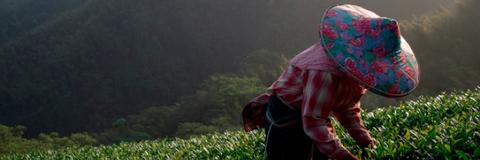
Sustainability and Responsible Farming—What Does it Entail?
Eco-Cha prides itself on sourcing tea in a responsible and sustainable way. There are lots of definitions and discussions on what this means exactly. These words can represent different things to different people. Here are some of the elements that we feel make a responsible farmer.
Privately Run Farms

Having smaller, privately run farms is not only kinder on the environment as there is no need for the use of commercialism and expensive production methods, but also can largely benefit the community in which they reside in both social and economic ways.
The typical farmers we come in contact with have inherited their family farm and have learned from the trial and error of previous generations. They have witnessed the misuse of their land due to uneducated acceptance of chemical products promoted by large MNE's that have infiltrated agriculture all over the globe. They have experienced the repercussions of unsustainable agriculture and realize that it is a short lived prospect. They are now actively seeking out and using progressive methods and innovations. (Some of these innovations have also been government subsidized by the Tea Research and Extension Station, TRES). There is a communal mentality among contemporary Taiwanese tea farmers to share experiences and assist each other in the challenges they meet. In recent years, individual farmers have formed co-ops to integrate their methods and gain support from each other in production and promotion of their produce.
We see all of this as a healthy and sustainable trend in the local tea industry. However, it is also threatened by larger commercial establishments that do not share these values or the limitations that family run farms face—which has inspired us to seek out and support what remains of a more traditional and natural source of tea cultivation.
Relatively Small-Scale Production
Small-scale farms and farmers are more easily able to provide goods directly to consumers, tailoring to their specific needs more efficiently and effectively. With a more personal relationship between the farmer and consumer, the entire community develops in a more tightly-knit way. This is cyclical—the stronger the community, the more more supportive they are of one another, the more successful the small-scale farms are, and the more satisfied consumers are.
Natural Farming Methods
The use of only natural fertilizers and avoidance of all chemicals is very important. Unless there is a need for a specific treatment with a nutritional supplement to balance soil composition, using the most eco-friendly methods is vital. This is healthier for the earth, the tea plant, the farmers, and of course consumers of the tea.
Responsible Farmers

It is important that the individuals involved in any stage of the process love and care about what they do. To have conscious, knowledgeable individuals who take pride in their production methods and expertise is absolutely vital.
Eco-Cha was initially founded on the tenets of sustainable agriculture, but upon closer examination of the micro-industry that we are involved with, we realized that by promoting the dwindling population of artisan tea makers, we are in effect supporting sustainable methods of agriculture. Not only this, but we realized that there is something much more special and unique to represent than simply a "green product" as defined by standards and certifications. We are supporting artisans of tea who run their own private enterprises based on tradition, hard work, and skills gained from experience. This, we fully believe is so much more precious than a product that simply meets the running definition of "sustainable".
In essence...
Caring for the environment, having a love and passion for what you do and about your product, and being personable and involved with your consumers are all important factors in responsible farming. We feel that if careful care and attention is made to farming in a sustainable and responsible way, there will be no question that you (as a consumer) will have the very best product.



